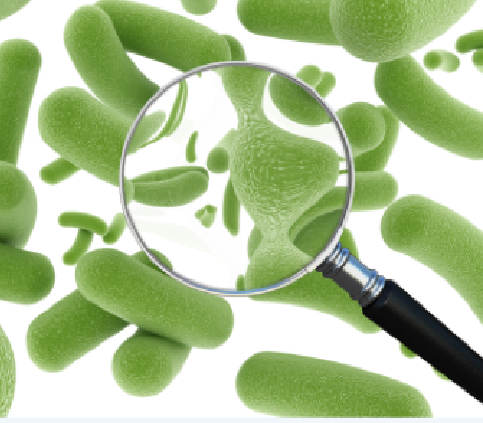 The most succinct definition of the ‘Microbiome’ is the entirety of microorganisms and their accompanying genetic material that we have in our bodies. Wait–is there that much microorganism activity going on in our bodies that there’s a whole separate word for it–not to mention world encompassing it? Absolutely. In fact, in the breakdown of cells making up the human body, you might say we humans are about 90 percent inhuman! A better explanation of that statement would be that the human body includes literally trillions of microorganisms and their combined genetic matter. And therein lies the Microbiome. Following is more detailed information about the fascinating world of the Microbiome that will help you better understand the Microbiome and what it has to do with your health.
The most succinct definition of the ‘Microbiome’ is the entirety of microorganisms and their accompanying genetic material that we have in our bodies. Wait–is there that much microorganism activity going on in our bodies that there’s a whole separate word for it–not to mention world encompassing it? Absolutely. In fact, in the breakdown of cells making up the human body, you might say we humans are about 90 percent inhuman! A better explanation of that statement would be that the human body includes literally trillions of microorganisms and their combined genetic matter. And therein lies the Microbiome. Following is more detailed information about the fascinating world of the Microbiome that will help you better understand the Microbiome and what it has to do with your health.
We’re not alone
You always knew you had other organisms living within your body, but did you ever in wildest dreams think that up to 90% of your body was made up of other living things besides you? It’s true! At this very moment, you are sharing your body and all its innards and outards (is that a word?) with upwards of a hundred trillion-yes trillion-microorganisms. They flit and float about in every area of your body, working in their separate communities helping your body perform every essential life-sustaining function. In short, your body is totally dependent upon a hundred trillion other living creatures!
What are they doing there?
Good question. Those hundred trillion microorganisms living in and on you right now are working in individual yet complimentary communities, all performing one major function–that is, keeping you alive. Well, that’s not totally true. Some of those microorganisms-called pathogens-are actually working against you, occupying themselves with causing disease and reeking havoc on you. They are disease-producing agents such as viruses and bacteria that just don’t want the best for you. They’re the ‘bad guys’ in your microbiome’s environment. The important thing to know about your Microbiome is how to keep all those trillions of microorganisms happy and existing peaceably with one another. But how do you keep a hundred trillions creatures coexisting without trouble?
What does my Microbiome do for my health?
The entire medical community finally has begun to understand what gastroenterologists in Queens and throughout the country undoubtedly have long understood–that these trillions of microorganisms have a significant effect, rather positive or negative, on the gut and the body as a whole. Because we are all products of our singular and collective environments, there is absolutely nothing each of us interacts with that does not affect our microbiomes. From the beginning of life, our microbiomes receive nutrition that affects gut microorganisms that significantly determine our health. From what we’re exposed to environmentally to what we eat and drink to where we come from and our families–these are all factors that directly affect the many trillions of microorganisms existing within us, what happens to them, and how they work. So, to paraphrase a famous historical speech, perhaps the question is not so much ‘what does my Microbiome do for my health?’ … but ‘what can I do for my Microbiome?’
What is my role in my Microbiome?

One of the most significant recent scientific finds is that too much reliance on antibiotics is negatively impacting our microbiomes, thereby increasing gut-related diseases. Another vital fact is that what we expose ourselves to, both environmentally and in our diets, is a major factor in developing those gut-related diseases. When it comes to aiding your body’s life-sustaining microorganisms, you must include in your daily diet foods that properly support your Microbiome so that it maintains its ability to maintain your optimal health. First, eat foods that don’t negatively test your gut, such as fresh vegetables, fresh fruits, lean proteins, beneficial fats, healthy herbs and spices, and vitamin supplements when necessary. The idea is to load your gut with healthy bacteria that will make your Microbiome a happy place to live. If you need more information about what types of foods to include in a healthy Microbiome diet, what types of environments you should avoid, and overall ways of maintaining your good gut health, contact a gastroenterologist near you for a consultation.

